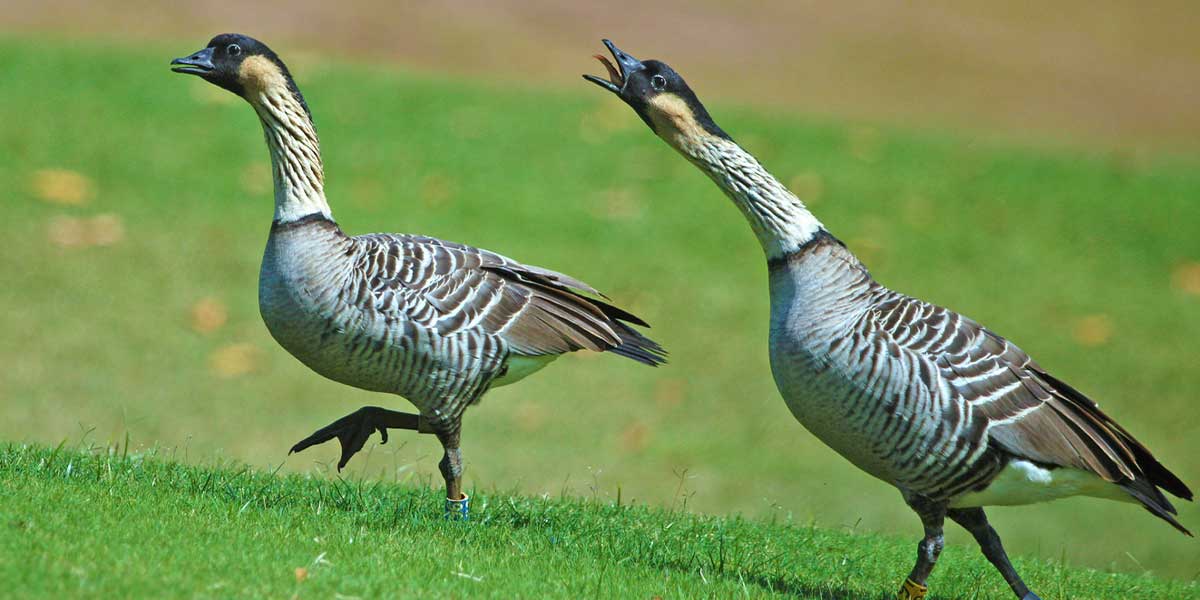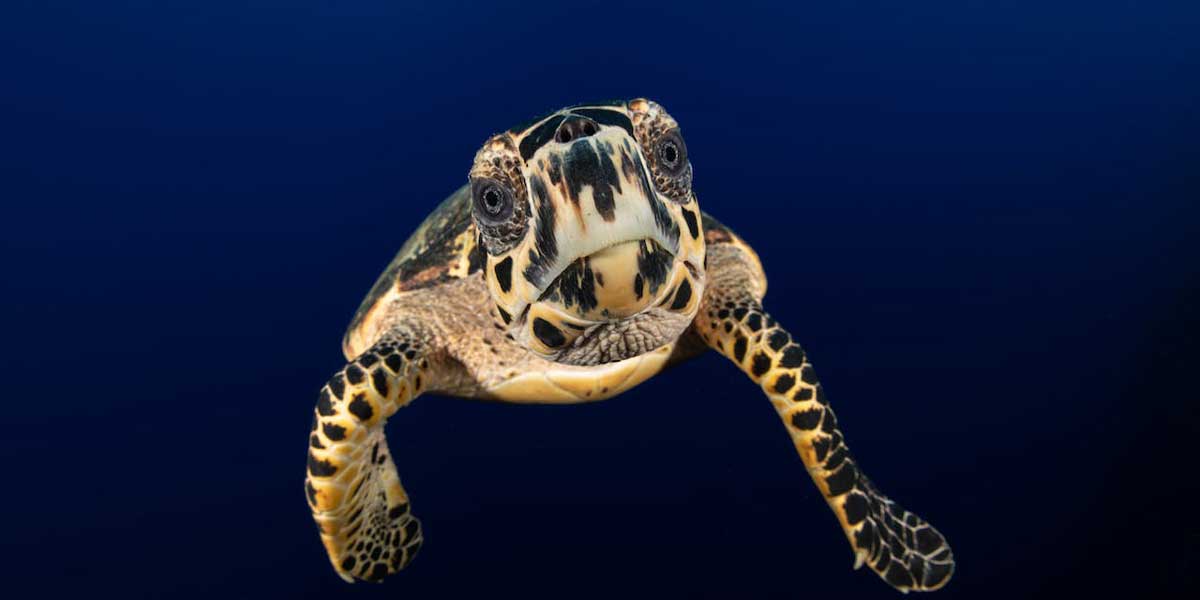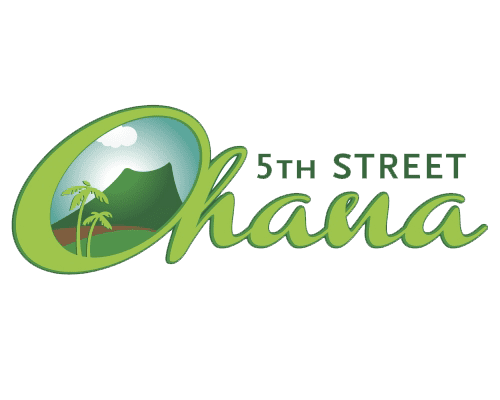Wildlife in Hawaii: Family Adventure near Volcanoes National Park!
Few things compare to an adventure-filled family vacation on the big island of Hawaii. When your kids think of Hawaii, they probably picture the beaches, the rainforest, and lots of animals. The town of Volcano offers a great number of activities for the whole family. Home to Hawaii’s Volcanoes National Park, you and the family are sure to witness many of the abundance of wildlife in Hawaii!
Our Hawaii vacation rental is conveniently located just 2 miles from Volcanoes National Park entrance. You will feel right at home in our traditional Hawaiian neighborhood. With room to sleep six people, we provide the space and atmosphere for the whole family to wind down after a long day of adventure. Enhance your family hike in the park by selecting our ‘Aloha Bag’ package, fitted with snacks, drinks, and a keepsake cooler bag. This addition can be made at the time of booking or by contacting us to add to your current reservation.
With the property surrounded by thick vegetation, the sights and sounds of the rainforest never rest. Read on to learn about some of the native animals of Hawaii that you may end up seeing during your visit to the Big Island!
ʻŌpeʻapeʻa (Hawaiian Hoary Bat)
It’s important to remember that the Hawaiian islands are very remote. They sit in the middle of the Pacific Ocean. Therefore, the animals and plants that arrived here came by wind, waves, or their own wings. The only native mammal to the Hawaiian islands did just that – the ʻŌpeʻapeʻa, or the Hawaiian hoary bat.
This species of bat landed on the islands 10,000 years ago, traveling over 2,000 miles from North America. A truly amazing feat indeed! With a wingspan that can grow to 12 inches wide, these bats roost in trees, unlike most other bats that live in caves or lava tubes. Make sure to look up!

Nēnē
The nēnē is the Hawaiian State Bird, a very fitting honor. They are also known as the Hawaiian Goose, the rarest goose in the world. A likely ancestor of the Canadian goose, this bird is both a strong flyer and walker. As an herbivore, the nēnē walks much during the day to feed off the endless vegetation of the islands. The reduced webbing in their feet indicates as much. Unlike migratory geese, the nēnē is non-migratory and enjoys the lands of Hawaii year round.
One of the most beloved characteristics of the nēnē is that they mate for life. They share parenting duties equally and the family unit is always strong. In the wild, nēnē can live up to 25 years!

Honuʻea (Hawksbill Turtles)
The endangered Hawksbill turtle, known as Honuʻea by the native Hawaiians, live in the waters off the islands. Their sharp, pointed beak differentiates them from the more common green sea turtle. Their narrow beaks give them access to their favorite food, the sea sponge. They are also smaller, averaging between 75-150 pounds.
In the mating season from May to December, females create their nest by digging beneath the sand with their strong flippers. They lay on average over 170 eggs to then be buried in the sand. Eggs incubate for two months before the tiny hatchlings dig their way out of the sand roof. When reaching the surface, the baby turtles will test the sand. If it is cool (an indication of darkness), they will hurry towards the water as a group.
Nananana Makakiʻi (Happy Face Spider)
As its name may suggest, the happy face spider does not actually smile. This special Hawaiian spider gets its name from the unique pattern on its back that often resembles a human face. They are in the same family as Black Widows, but do not fear! Their toxicity levels are so low that they are harmless to humans. They are very small, only growing to five millimeters in size and their yellow color helps them blend into the vegetation. Every spider has a unique pattern on its back, and they can even change color based on their diet! One theory suggests in order to survive, the changing colors help the happy face spiders hide. They live in thin webs on the undersides of leaves. The happy face spider likes to hunt at night, usually dangling from its web. Unlike many other arachnids, the mothers care for their young 4-6 weeks after hatching. They aggressively guard the eggs making this truly a unique spider.
Preserving Wildlife in Hawaii: Every Kid in a Park & Eco Tips!
It takes a lot of effort to keep these beautiful creatures protected on the big island. Most native animals in Hawaii are endangered. Your kids will have opportunities to engage in the park in meaningful ways like earning an Every Kid in a Park pass and learn about ongoing conservation efforts from a park ranger.
To earn an Every Kind in a Park pass, you will need to visit www.everykidoutdoors.gov to get a temporary pass. This is very easy to do since we offer Wifi in the Sir Spencer unit. Bring the temporary pass to the park to trade for an official Every Kid in a Park pass. This makes for a wonderful souvenir for your child. It couldn’t be simpler!
Remind your kids of some easy steps to help protect the fragile environment within Volcanoes National park and around the Volcano area:
- Stay on established trails. There is much to see and enjoy from the trail. Keep a safe distance from any wildlife. Remember, this is their home – let’s respect it!
- Clean shoes before and after entering forests. Brush off any soil with rubbing alcohol or a mixed bleach solution to prevent the spread of plant fungus and invasive plant seeds from spreading.
- Ask if you don’t know! Park rangers are very knowledgeable of the history and cultural significance of the park. They love to answer questions and, more so, educate the public on what they can do to help protect the land.
You and your kids now have a list to get you started on your wildlife viewing in Volcanoes National Park. As you plan your family vacation to Hawaii, visit our website and book online. Military families and Hawaiian residents are awarded a 10% discount when booking our rooms. For families who opt to take a longer vacation (which is always recommended), we honor larger discounts for long term (7 days or more) rentals. We guarantee your family a trip of a lifetime and unforgettable memories!

